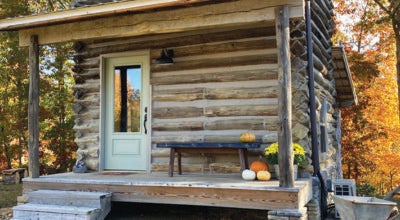The Literary Corner: Renegade Writers Guild
Published 11:03 am Friday, February 19, 2021
|
Getting your Trinity Audio player ready...
|
Early North Carolina Settlers
By Linda H. Barnette
Note: This is the first article in a series that I am doing about early settlements in our area and the famous folks who lived here then. I sincerely hope that you enjoy these articles.
Although he was describing the coastal region of our state, Ralph Lane, the leader of one of Sir Walter Raleigh’s voyages to the New World in the late 1500s, could have been talking about any section of North Carolina when he said that the “land contained the goodliest soile (sic) under the cope of heaven.”
The famous English explorer, John Lawson, wrote extensively about the areas of our state as he traveled the along the Great Trading Path, the trail used mostly by Indians in those days. He described the land along the Yadkin as “rich” and wrote of the grass that was “six feet high along the banks of the rivers,” and he was amazed by the tall cane and the abundant animal species, such as bear, deer, buffalo, and birds, especially the huge flocks of pigeons. He described the river at Trading Ford in the area of Yadkin County now as a “pleasant river keeping a continual pleasant noise” as it flowed over the rocks. When Lawson returned to England in 1708, he published his book called “John Lawson’s A New Voyage to the Carolinas,” which, among other things going on in England at that time, caused people to become interested in coming to the New World. So it seems that one of the major reasons why people came to this place was the promise of beautiful, and as it so happened, inexpensive land.
Another major reason that Europeans wanted to come to the colonies was their desire for religious freedom, to be able to worship as they chose, and not to be forced to belong to any single church but to choose their own. In 1517 in Germany a professor and priest named Martin Luther wrote his famous 95 Theses, and nailed them onto the door of his church in Wittenberg, Germany, and unknowingly began what became known as the Protestant Reformation because he questioned some of the tenets of the Catholic Church, which was the only religious organization in Europe at that time. Naturally, Luther’s work stirred up quite a controversy and paved the way for groups of believers in his new theology to break away from the Catholic Church and form new groups that became known as Protestants: Quakers, Lutheran, Reformed, and later Baptists and others. These people became victims of religious persecution and lived in the fear of death or other harm.
Another person who greatly influenced the migration to the colonies was William Penn. Against the wishes of his father, he broke away from the Church of England in the mid 1600s. Eventually he became a preacher and traveled to Holland and Germany preaching his modern religious views. Although he was arrested several times back in England and was imprisoned in the Tower of London for expressing his religious views, he continued with his work. Because of his father’s friendship with King Charles II, Penn received a large land grant in 1681 and established the colony of Pennsylvania, which he named after his father. Pennsylvania was founded on the principle of religious freedom and provided a refuge for Quakers and other Non-Conformist groups—religious groups were in general referred to as Non-Conformists rather than Lutherans, etc., as they are now. After a few years as the land became crowded, some settlers left Pennsylvania and came South, many into this area of North Carolina. Many of these were our ancestors. In the next article, I will talk about who they were and where they settled.
Questions to Ask Ourselves
By Stephanie Williams Dean
I’ve got a lot of work to do. The kind of inner work that takes time and thought. I’m a late starter to the New Year and getting resolutions off the ground – with no good excuse. In fact, I think I’ve already forgotten the resolutions I made.
Recently, a friend asked me, “Where do you see yourself in 10 years?” The question caught me off guard – and it shouldn’t have. I’m active in designing my life, pursuing my passions, practicing a few talents, and adding new hobbies. The question sparked a more critical question.
What questions should I be asking myself? This question is one we should be asking ourselves frequently to have the best lives possible going forward.
Are you doing what you want to be doing? This moment in time is the time to make changes. While active in your day, ask yourself this question – and often. A transformation begins here.
Why are you worrying? Talk about a sure way to waste time and dampen happiness. Studies show that if we focus our thoughts on gratitude, there’s less room for worry.
What’s your body trying to tell you? Our bodies are designed to protect us naturally. Listen. You know what that means.
How’s the world different because we live in it? Have you considered you’re a part of the world’s history? Living by design and not accident guarantees a mark in history. Finding our purpose in life is essential – even if that’s nothing more than creating delicious meals for friends. If you don’t have a purpose, keep asking yourself this question – until you define one. It doesn’t have to be anything big.
When have I been wrong? Instead of insisting you’re right, you will grow and gain insight by asking this question. Are you able to admit you’ve been wrong?
Am I living authentically? Don’t bargain here. Follow your heart’s desire and turn your back on social acceptance.You were born to live an adventure – force yourself out of comfort zones. Don’t bargain with the devil – choosing to place greater value on ethics – instead of any other gain. Be real.
“Am I living an authentic life?” What are your favorite pastimes, and are they available to you? Are you using your natural talents? Take a baby step. Do what you can now with what you have to work with.
I’ve come to the question that’s so important to living your best life. That is, are your thoughts of a healing nature? Do you realize that happiness is driven by nothing more than your thoughts? Fill your mind with positive healing stories instead of replaying old injurious ones. Don’t do harm to yourself, causing needless suffering. Healing thoughts heal hearts. Stop tearing yours apart.
And finally, I’m back to the original question, which we must ask ourselves over and over. Are you doing what you want to be doing? Define what little thing would make your life more pleasant right now – and begin by doing it.





